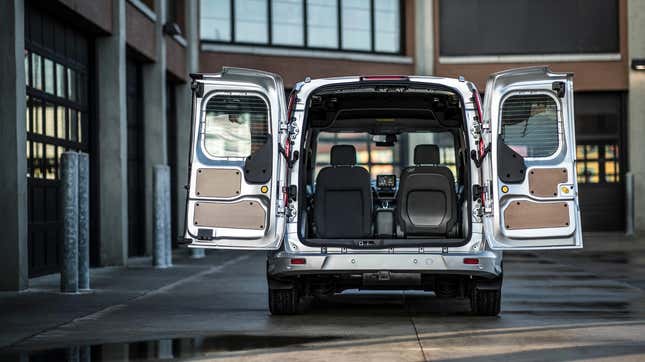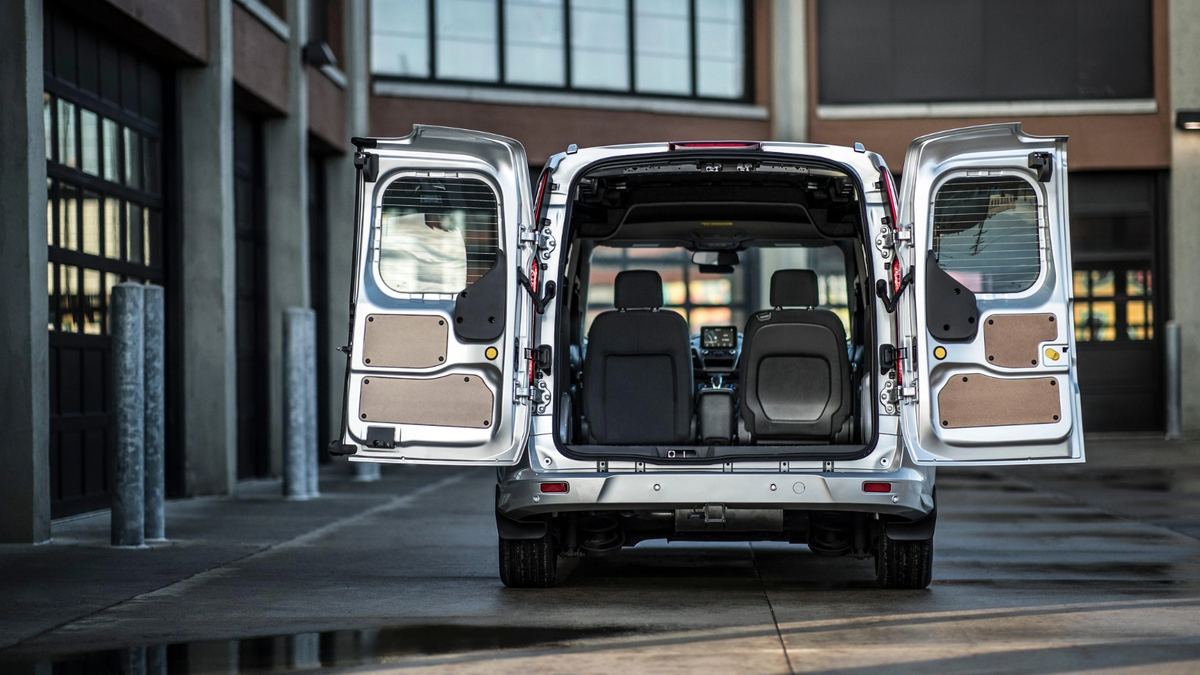
The Chicken Tax has been around since 1963, pushing a crushing 25 percent tariff on imports of potato starch, brandy, dextrose, and light trucks and vans. I don’t know much about potato starch, brandy, or dextrose, but the light trucks and vans part of the law was intended as a middle finger to Germany’s Volkswagen. The vans and commercial trucks sold by VW at the time were going gangbusters, eating into the profits of American automakers, who simply couldn’t build a van that could compete with the iconic aircooled Type 2 Transporter. The law was little more than a ploy by Lyndon B. Johnson to win reelection with the United Auto Workers vote. It has outlived its welcome.
Ford was recently hit with a massive $365 million fine for circumventing the import tax. The blue oval violated the chicken tax law by misclassifying and understating the value of hundreds of thousands of its Transit Connect vans. The company was building Transit Connect vans in Turkey with vestigial rear seats and windows installed in the cargo area so the vehicle could be designated as a passenger vehicle with a 2.5 percent import duty instead of a commercial one with a 25 percent hit. Once they got to the U.S. those pieces would be removed, and the car could be sold as commercial competitors.
Trucks are fucking expensive, and the Chicken Tax is partly to blame. Because the law forced an un-level field of competition in the favor of American automakers. Ford, and to a lesser extent Ram and Chevrolet, have owned the truck market in the U.S. for decades. With the small truck competition from the likes of Toyota and Nissan successfully fully squashed by the mid-1980s, they’ve seen unfettered growth and expansion, chasing bigger numbers and higher profitability at the cost of the consumer’s needs. Without competition from overseas, American manufacturers just stopped trying to build interesting trucks.
The recent success of Ford’s smaller Maverick pickup proves that today’s Americans are eager for a compact with a bed, but Ford is building fewer than the world demands because it would rather push consumers up into a larger and more profitable F-series. A smaller and less expensive option could have come from a non-U.S. automaker, forcing the market to adjust and offer competing products. That’s one of the good things that capitalism can do, but we aren’t letting it. Instead, we’re employing the kind of home market protectionism that often China or Japan are criticized for doing.
Would it really be a bad thing if we were to make it easier and more profitable for Ford to import the tremendous Transit Courier compact van to the U.S., or Mercedes-Benz the Citan? Or any number of the thousands of small commercial vans available in China? Commercial operations in the U.S. could get a smaller and more fuel efficient option for hauling their goods around, and average everyday Americans would pay less for the items they need to survive and corporate partners would be able to provide increased shareholder returns.

